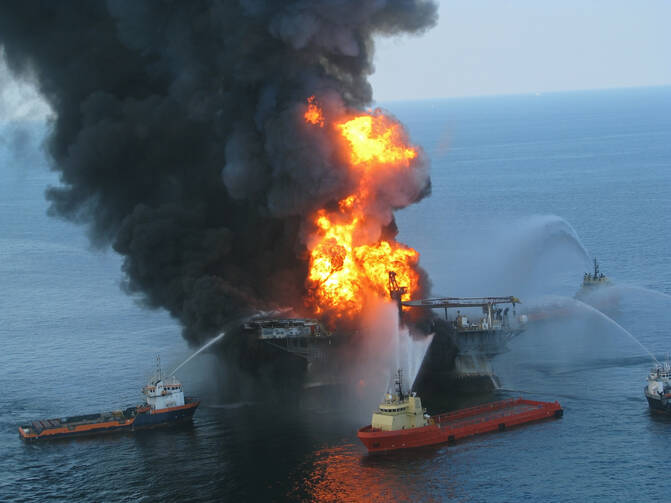Each year at the end of May, Americans set aside a day to honor those who have died defending our nation and the freedoms we enjoy. And well we should: we owe these men and women a debt we can never repay.
Each year on April 28 our nation and workers around the world mark a different Memorial Day. On Workers’ Memorial Day, they pause to remember those who have died on the job. In the United States, on a typical workday, more than a dozen men and women die while bringing us the prosperity we enjoy. They are exposed to deadly chemicals and dangerous machinery while building our cars and computers; they fall from rooftops while building our homes and offices, or fall from heatstroke while harvesting our food; they are struck by cars while filling our potholes, or are electrocuted while restoring power to our homes after a storm.
From 2003 and the present, the Department of Defense tells us, the Iraq war claimed the lives of 4,476 of our men and women in uniform. The Census of Fatal Occupational Injuries maintained by the Bureau of Labor Statistics reports more than 4,500 occupational fatalities in our nation every year. Compounding the tragedy, OSHA’s postmortem investigations find all too often that these occupational fatalities are the product of “friendly fire.” The deaths could have been avoided if the employers whom these workers trusted to keep them safe had taken some simple, legally required precautions – perhaps by shoring a trench properly against collapses, or ventilating a space where toxic fumes could accumulate, or providing fresh drinking water to those working outdoors in the heat of a Southwest summer.
And American workers enjoy far safer working conditions than their counterparts in the developing world. The International Labor Organization estimates that 2.3 million workers around the globe die annually from workplace injuries and illnesses. That’s more than malaria, more than AIDS, more than the Syrian civil war or the Rwandan genocide. (Indeed, with the exception of the terrible conflict in the Congo, probably no conflict since World War II has claimed so many lives.)
Around the world, this year’s observations of Workers’ Memorial Day have been especially poignant, coming as they do just after the one-year anniversary of the Rana Plaza disaster in Bangladesh. The 1100+ workers who lost their lives stitching garments to clothe us are emblematic of the millions around the world who have sacrificed all producing the goods and services we enjoy. As consumers, it is incumbent upon us to consider the safety and health of such workers as we make our shopping selections. As citizens, we must ensure that our elected leaders give workplace safety and health the priority it deserves in our domestic public policy and our trade agreements with foreign lands. And as Christians, let us offer our prayers this day on behalf of all those have died laboring at their craft.








